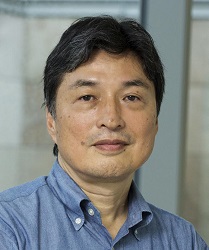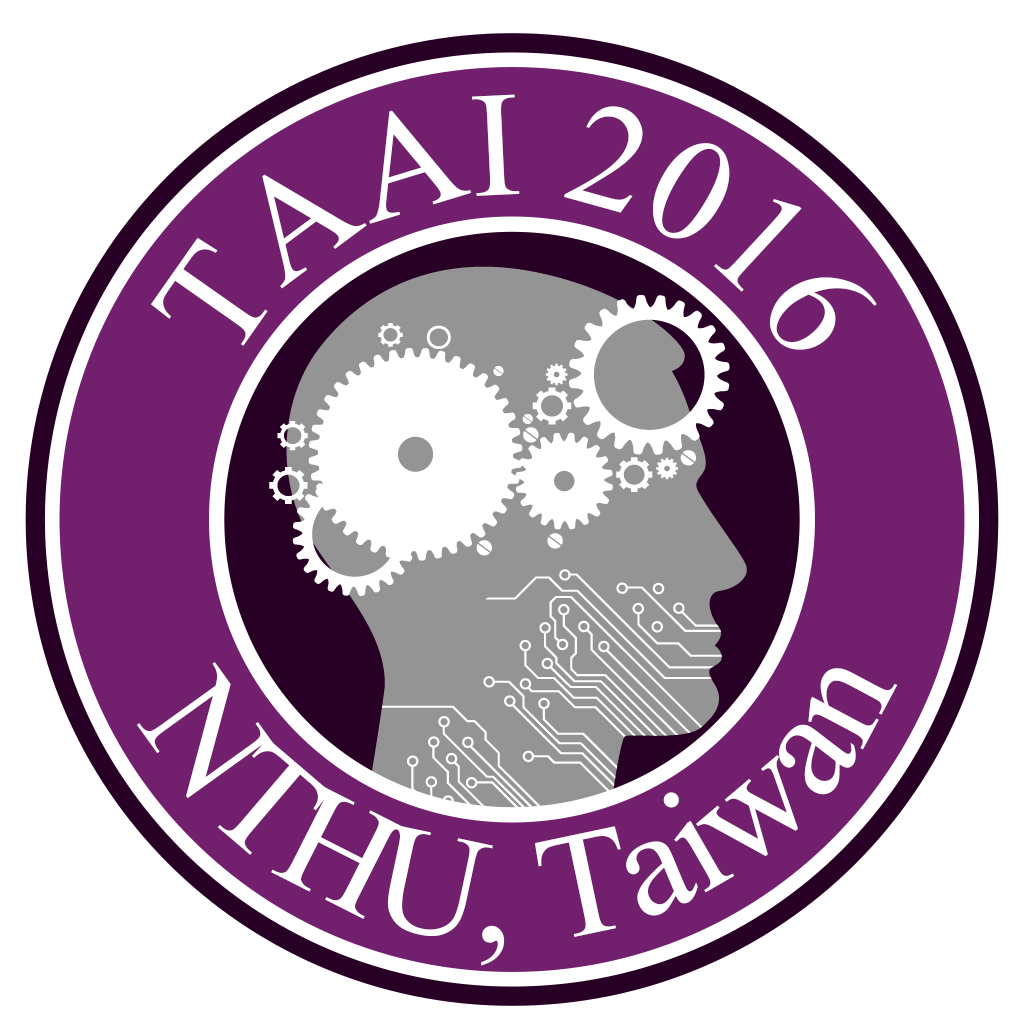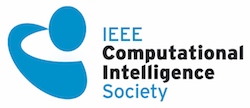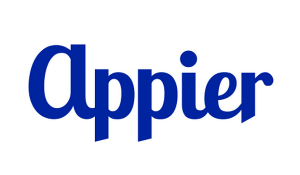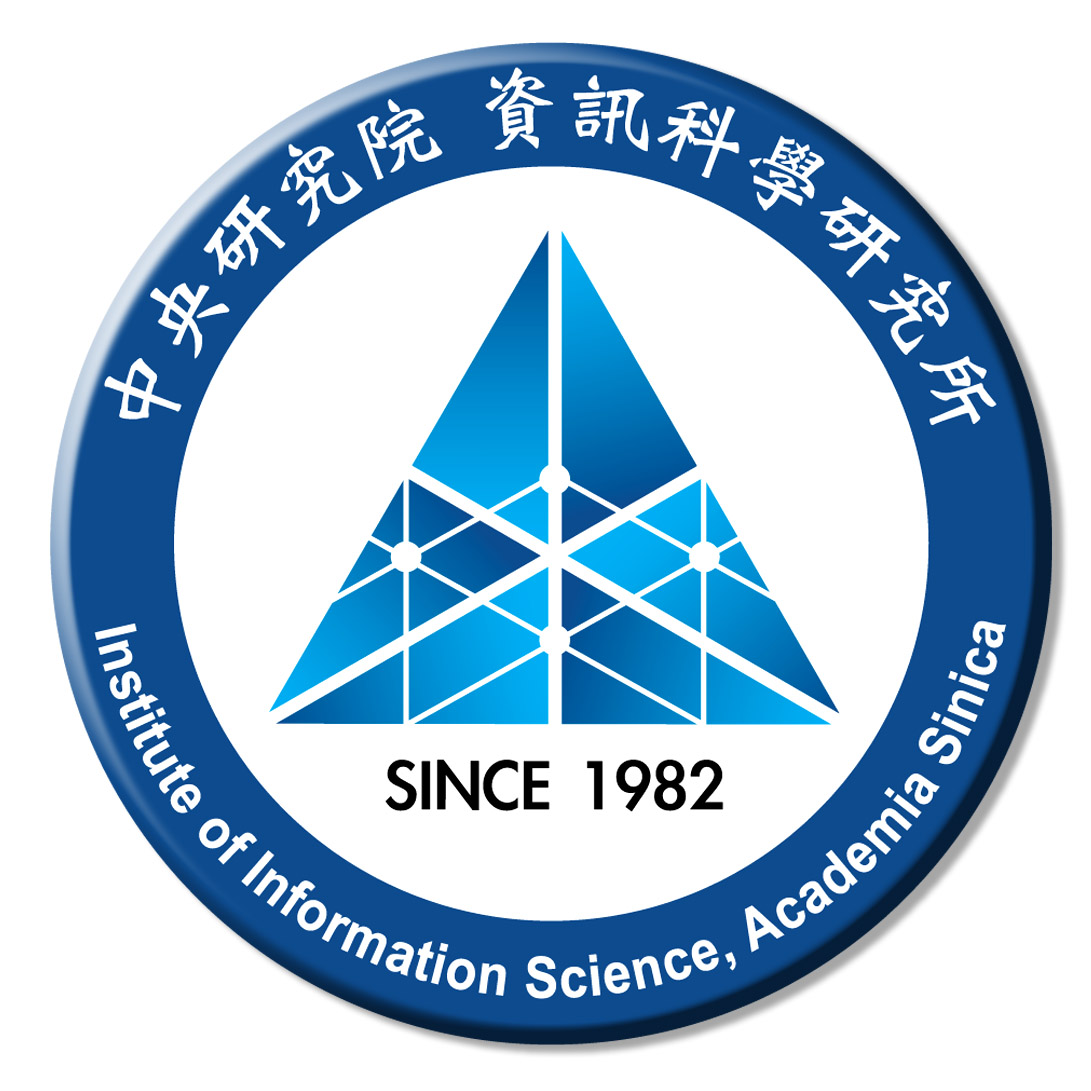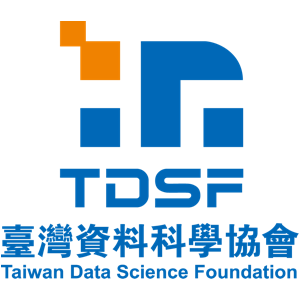It's all about AI
Prof. Hong-Yuan Mark Liao
Distinguished Research Fellow,
Institute of Information Science, Academia Sinica, Taiwan
Professor,
Department of Computer Science, National Chiao Tung University, Taiwan
Department of Electrical Engineering and Computer Science of National Cheng Kung University, Taiwan
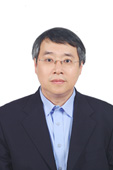
Abstract .
In this talk, I will cover two topics which are closely related to AI. The first one is "spatio-temporal learning of basketball offensive strategies" and the second one is "learning to classify shot types." Video-based group behavior analysis is drawing attention to its rich application in sports, military, surveillance and biological observations. Focusing specifically on the analysis of basketball offensive strategies, in the first topic we introduce a systematic approach to establishing unsupervised modeling of group behaviors and then use it to perform tactics classification. In the second topic, a deep-net based fusion strategy is proposed to classify shots in concert videos. Varying types of shots are fundamental elements in the language of film, commonly used by a visual storytelling director to convey the emotion, ideas, and art. To classify such types of shots from images, we present a new framework that facilitates the intriguing task by addressing two key issues. First, we learn more effective features by fusing the layer-wise outputs extracted from a deep convolutional neural network (CNN). We then introduce a probabilistic fusion model, termed error weighted deep cross-correlation model, to boost the classification accuracy. We provide extensive experiment results on a dataset of live concert videos to demonstrate the advantage of the proposed approach.BIOSKETCH .
Prof. Mark Liao received his Ph.D degree in electrical engineering from Northwestern University in 1990. In July 1991, he joined the Institute of Information Science, Academia Sinica, Taiwan and currently, is a Distinguished Research Fellow. He has worked in the fields of multimedia signal processing, image processing, computer vision, pattern recogniti on, video forensics, and multimedia protection for more than 25 years.During 2009-2011, he was the Division Chair of the computer science and information engineering division II, National Science Council of Taiwan. He is jointly appointed as a Professor of the Computer Science and Information Engineering Department of National Chiao-Tung University and the Department of Electrical Engineering and Computer Science of National Cheng Kung University. During 2009-2012, he was jointly appointed as the Multimedia Information Chair Professor of National Chung Hsing University. Since August 2010, he has been appointed as an Adjunct Chair Professor of Chung Yuan Christian University. Since August 2014, he has been appointed as an Honorary Chair Professor of National Sun Yat-sen University. He received the Young Investigators'' Award from Academia Sinica in 1998; the Distinguished Research Award from the National Science Council of Taiwan in 2003, 2010 and 2013; the National Invention Award of Taiwan in 2004; the Distinguished Scholar Research Project Award from National Science Council of Taiwan in 2008; he Academia Sinica Investigator Award in 2010; and the TECO Award from the TECO Foundation in 2016.
His professional activities include: Co-Chair, 2004 International Conference on Multimedia and Exposition (ICME); Technical Co-chair, 2007 ICME; General Co-Chair, 17th International Conference on Multimedia Modeling; President, Image Processing and Pattern Recognition Society of Taiwan (2006-08); Editorial Board Member, IEEE Signal Processing Magazine (2010-13); Associate Editor, IEEE Transactions on Image Processing (2009-13), IEEE Transactions on Information Forensics and Security (2009-12) and IEEE Transactions on Multimedia (1998-2001). He has been a Fellow of the IEEE since 2013 for contributions to image and video forensics and security. During 2014-15, he served as IEEE Signal Processing Society Region 10 Director (Asia-Pacific Region). Currently, he is one of the members of the IEEE Signal Processing Society Nomination & Appointment Committee.
Contention and disruption
Prof. Jaap van den Herik
Professor,
Leiden Centre of Data Science, Leiden University, Netherlands
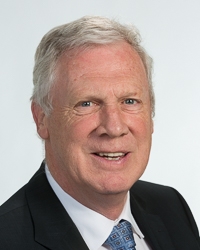
Abstract .
The development of science is clear. From 1950 to 1990 we lived in a world of Contention, with as main question: Will Contention between Paradigms lead to a Paradigm Shift? This development is nicely described by Popper (Logic of Scientific Discovery), Kuhn (The Structure of Scientific Revolutions), Lakatos (The Methodology of Scientific Research Programmes), and Feyerabend (Against Method). In the world of Games, this development is seen in the transition from Minimax to Monte Carlo Tree Search (MCTS). Apparently, the successor of Contention is called Disruption. Currently, we live in a world full of disruptions (1990-2030). In the lecture, I will show the current development by Daniel Dennett (Consciousness Explained, 1990), Richard Susskind (The Future of Law, 1998), Nick Bostron (Superintelligence, 2014), and my own thoughts on Intuition is Programmable (Van den Herik, 2016). The latter is extremely well identified by the power of Deep Learning in the Game of Go (congratulations to Aja Huang). Around 2030 we may expect to see a quantum computer in operation. It will not only produce prime numbers, but also give us the solution of the game of chess (draw or a win for White), and thereafter even for Go (i.e., at a later date). Next to game results, we will observe a continuous development: from decisions made by humans to decisions made by computers. Here, moral constraints are important. Examples will be given.BIOSKETCH .
Prof. Jaap van den Herik studied mathematics at the Vrije Universiteit Amsterdam, where he graduated cum laude in 1974. He continued to work for a year at the Free University as a researcher. In 1975 he became assistant professor at the Technical University of Delft. In 1983 he was promoted here on the thesis "Computer Chess, chess and artificial intelligence," the promoters Henk Lombaers, Adriaan de Groot and Joop Doorman. Having been appointed by the School of Computer Science from McGill University in Montreal, Canada, he was from 1987 to 2008 professor at the University of Maastricht. Since 1991 he is also affiliated with the University of Leiden. Since 2008 he is a professor at the University of Tilburg, and leads as well as the Tilburg Center for Cognition and Communication (TiCC). Van den Herik had together in 1980 with a number of chess lovers, including Max Euwe, co-founder of Computer Chess Association Netherlands (CSVN). He is also co-founder of the NVKI (Dutch Association for Artificial Intelligence) and was its chairman from 1990 to 1995. From 1991 to 1999 he was also president of the JURIX, international "Foundation for Legal Knowledge-Based Systems". Since 1983, he is editor of the Journal of the International Computer Games Association (ICGA Journal).His research interest and expertise lie in the field of agents, computer networks, computer systems, information technology, knowledge management, artificial intelligence and game theory.
Since the late seventies he is engaged in computer chess and the judge by computers, both of which are highly developed in the last decades.
More information about him can be found at https://nl.wikipedia.org/wiki/Jaap_van_den_Herik
Intercultural Collaboration as a Multi-Agent System
Prof. Toru Ishida
Professor,
Department of Social Informatics, Kyoto University
